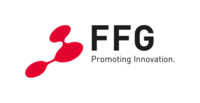Requirements for a digital product passport regarding technical, legal and organizational issues.
Background
Informed decisions and informed action on the path to climate neutrality require a solid base of authoritative data and information. It is an essential prerequisite for developing digital applications and tools that help to establish a sustainable social system based on a circular economy. One such tool is the Digital Product Passport (DPP). A DPP contains and provides information about a product's origin, its components, how it can be repaired and disassembled and how the various materials can be recycled or disposed of at the end of the product’s life cycle. Consequently, it contributes to arrive at easily reusable, more durable, repairable, recyclable and more energy-efficient products and services.
Project content
As a tool to create transparency and unlock circularity, the European Commission (EC) proposes Digital Product Passports (DPPs) that share product information across the entire product lifecycle including raw material extraction, production, recycling, etc. The current DPP4All exploratory project is aimed at determining which requirements must be met to put a digital product passport into practise. Technical, legal and organizational aspects, the needs and concerns of various interest groups are considered, and pathways for turning a product passport into a concrete application are shown.
Aims and methods
DPP4ALL intends to determine "data-related prerequisites" for realizing digital product passports that store information about products and value chains. "Data-related prerequisites" in this context is an umbrella term for the technical, legal and organizational framework conditions that a Digital Product Passport must satisfy in order to be functional. DPP4ALL intends to close knowledge gaps and is based on existing findings and well-established survey methods that ensure comparability with previous research. The project is divided into the following sub-steps:
- Desk research and a document analysis to collect project-relevant information and become familiar with and expand on the current knowledge state.
- Structured expert interviews including needs assessment and requirements elicitation. The focus is on technical, legal, and organizational/business strategy barriers that might impede an implementation of a DPP.
- Conducting a representative, quantitative online survey with consumers in Austria to gain insight into their view on the research topic.
- Focus group discussions with selected representatives from the identified stakeholder groups. This is done to reconsider and review the study results and the derived recommendations.
Result
In the project DPP4ALL the technical, legal and organizational requirements for a Digital Product Passport (DPP) are explored, thereby laying the foundation for a concrete implementation. Potential areas of application include providing information on the energy consumption of products and services, tracing the production chains of textiles, tracing of how building materials were produced and documenting where raw materials came from. In short, a DPP is an important building block to drive forward the transformation from the current economical system into a system based on circular economy.
You want to know more? Feel free to ask!
- Brainbows GmBH (Martin Weishäupl & Markus Schneidergruber)


